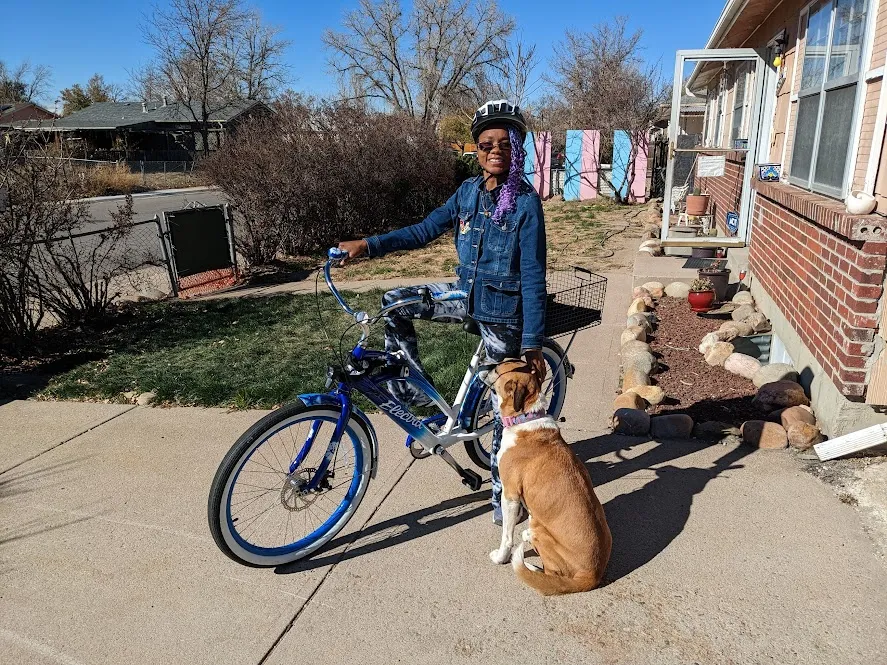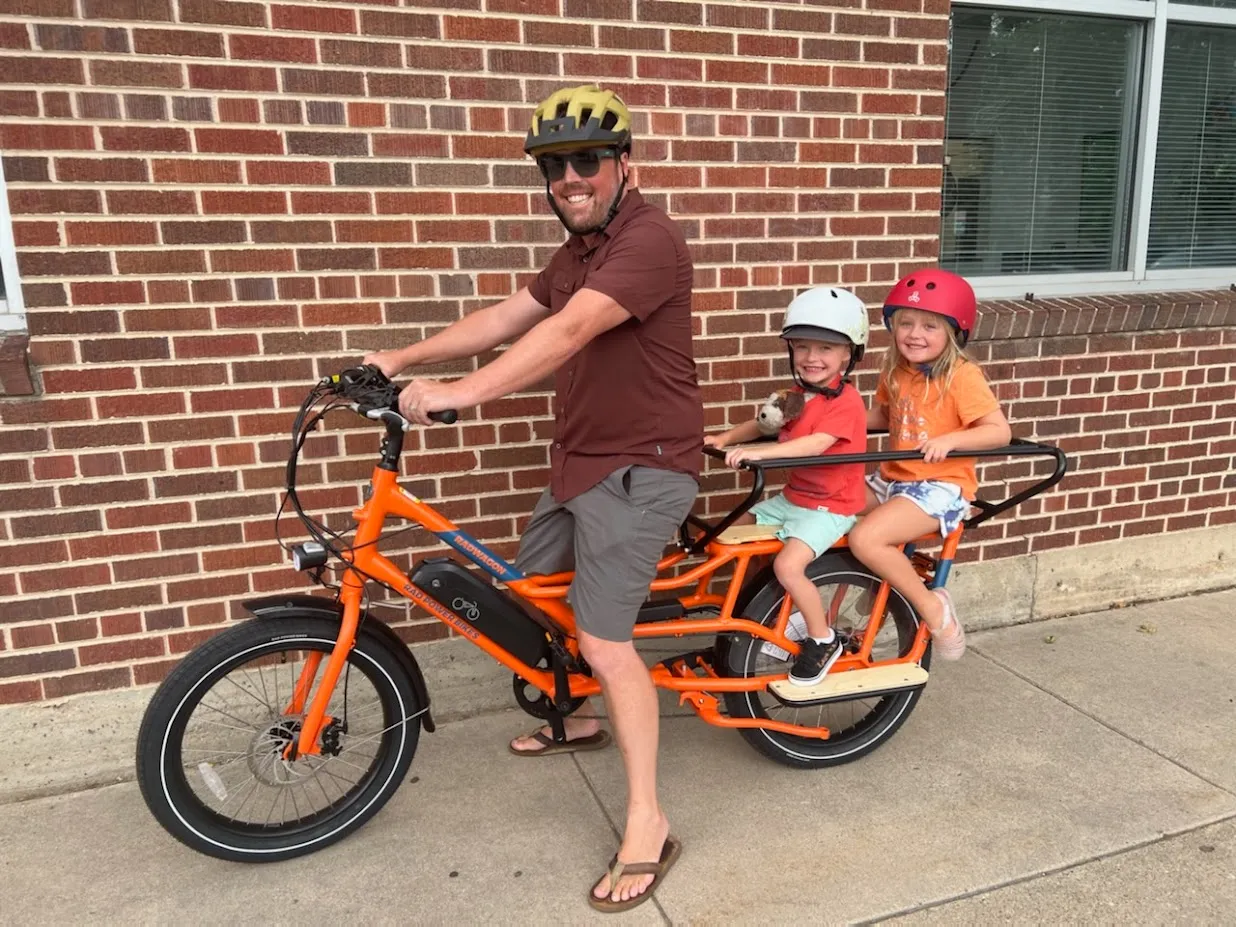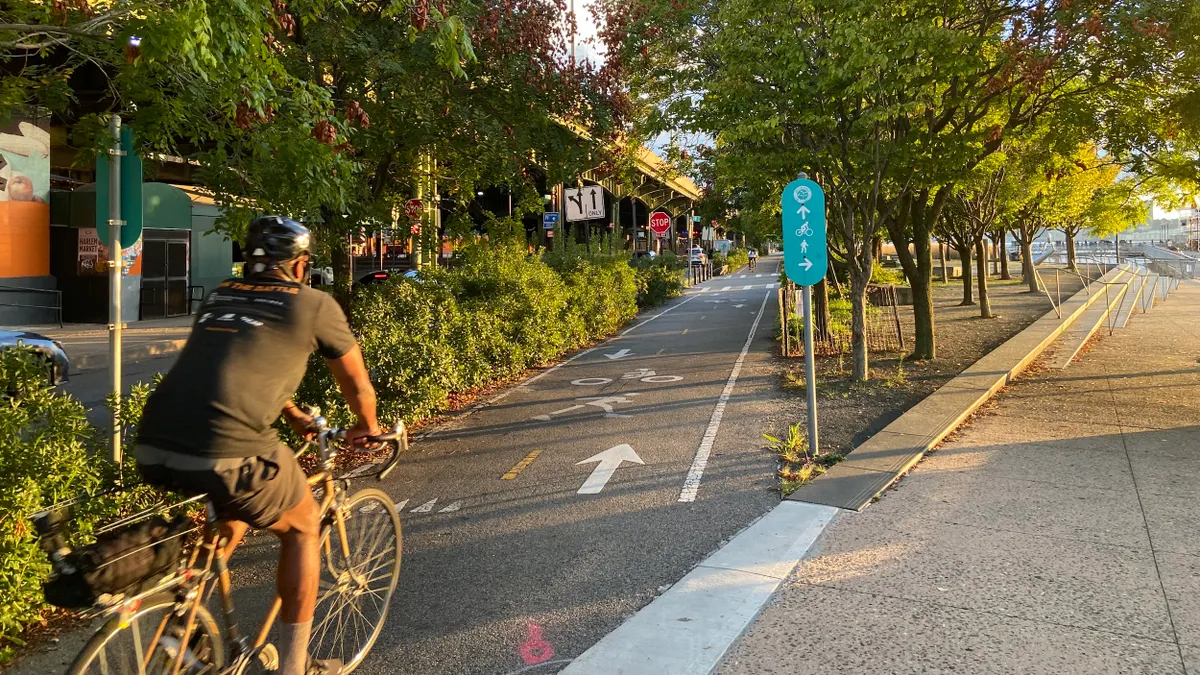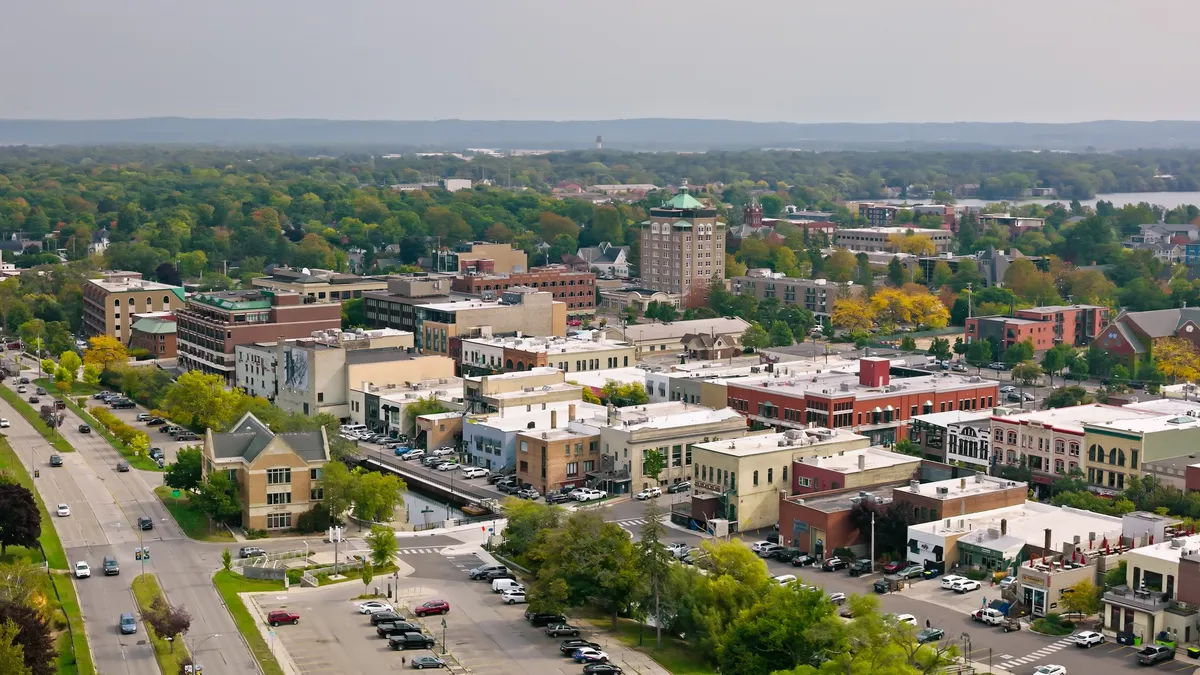Twenty minutes. That’s how long it reportedly took Denver residents to snatch up the latest round of 860 vouchers for electric bike rebates available this week through the local government’s notably popular program.
Less than a year old, the program gained local and national attention after its Earth Day launch in 2022 by the city and county’s Office of Climate Action, Sustainability, and Resiliency, which funds efforts through a voter-supported tax approved in 2020.
“I still remember, we were in the office that Monday following the release and I'd spoken to our contractor about the number of applications they had received over the weekend — I think it was 3,000 or so — at which point that had already blown past our initial allocation of funding,” said Mike Salisbury, who leads the program.
“So I remember having that conversation with my colleagues: ‘we need to figure out what's happening and how we go forward with this program.’”
Envisioning and adapting
Transportation is one of the area’s highest sources of pollution and Denver is working to reduce greenhouse gas emissions 65% by 2030 from a 2019 baseline. In 2022, e-bike vouchers were worth up to $400 for residents or $1,200 for income-qualified residents. There are also options for e-cargo bikes and adaptive e-bikes. Today, the local government works with around 30 local bike shops.
Salisbury, who has worked with the local government for about five years in different roles, now serves as transportation energy lead in the climate office, where he focuses on “trying to electrify anything with wheels” and getting people out of cars. E-bikes, which may travel up to 28 mph, are one way to do that.
A climate action task force a few years ago recommended that the city do more to promote access to e-bikes, Salisbury said, showing it was something the community was pushing for. In 2020, local leaders also witnessed a small pilot led by the state that provided low-income essential workers in the Denver area with e-bikes to help them get to work. It made them think, “‘This is happening right here in Colorado already. How can we build on that and make it bigger?’” Salisbury said.
At the end of 2020, voters passed what is now the Climate Protection Fund, which raised the local sales and use tax by 0.25% to generate $40 million annually toward mitigating the causes of climate change, with a focus on equity. Among the allowed beneficiaries are programs that provide affordable and clean transportation choices – one being biking. “At that point, we knew we had some funding for a program like this,” Salisbury said.
The e-bike rebate program is funded with Climate Protection Fund dollars. “We are very lucky, as most cities do not have a dedicated climate fund,” Salisbury said. Cities interested in a program like this often have to do a standard general fund budget request, competing with many other priorities. While the Climate Protection Fund does have a five-year plan, Salisbury has some flexibility within the $30 million intended for transportation uses, allowing for reprioritization.

The culture of the climate office supported the program’s launch and adaptability, Salisbury said. “I think we are very aware that the challenge presented by climate is incredibly pressing, very time-sensitive: we need to do big things as quickly as possible. So we don't want to spend forever trying to figure out solutions,” Salisbury said. The climate office did not expect to spend as much as it did on the program in 2022, but leadership saw the public’s excitement and responded with more funding.
Widening reach
Denver is planning a handful of additional voucher release dates in 2023, dependent in part on how much money is left after voucher recipients make purchases.
The greatest growing pains with managing the program have been in its scale-up, Salisbury said. When the team started the program, it had “some very back-of-the-envelope ideas” about expected voucher redemption rates. In reality, redemption ended up being higher, especially as awareness and popularity of the program grew.

Program management takes up more staff time than intended. “When you kind of scale up the program to 15, 20 times larger than originally anticipated, it just creates a lot more work for everyone – great problem to have,” Salisbury said.
One of the top takeaways from the program’s success is the benefit of built-in budget flexibility, Salisbury said, particularly as it’s hard to know which programs will take off and engage the public.
“The world changes quickly, so it was really helpful to be able to change as the program again evolved and developed to be able to adapt to that and not be as locked into ‘this is what we're doing for the next three to four years,’” Salisbury said.
Denver wasn’t the first city to come up with the idea of an e-bike rebate program, Salisbury said, and recent pushes for e-bike incentive programs at the state level in California and Oregon, or at the city level in Atlanta, Nashville, Tennessee, and Washington, D.C., suggest it won’t be the last either. Salisbury said he’s spoken with at least 35 different cities and nonprofits about how to get such a program off the ground.
That momentum is “incredibly heartening, because obviously, as the city of Denver, we can do everything in the world to reduce greenhouse gas emissions, but to be successful in the size of that challenge, that work has to be everywhere,” Salisbury said. There could be a “snowball effect.”
“The potential for reduced greenhouse gas emissions from the transportation sector with an e-bike is huge. So the more areas of the country that invest in this is just going to increase that potential even more,” Salisbury said.



















